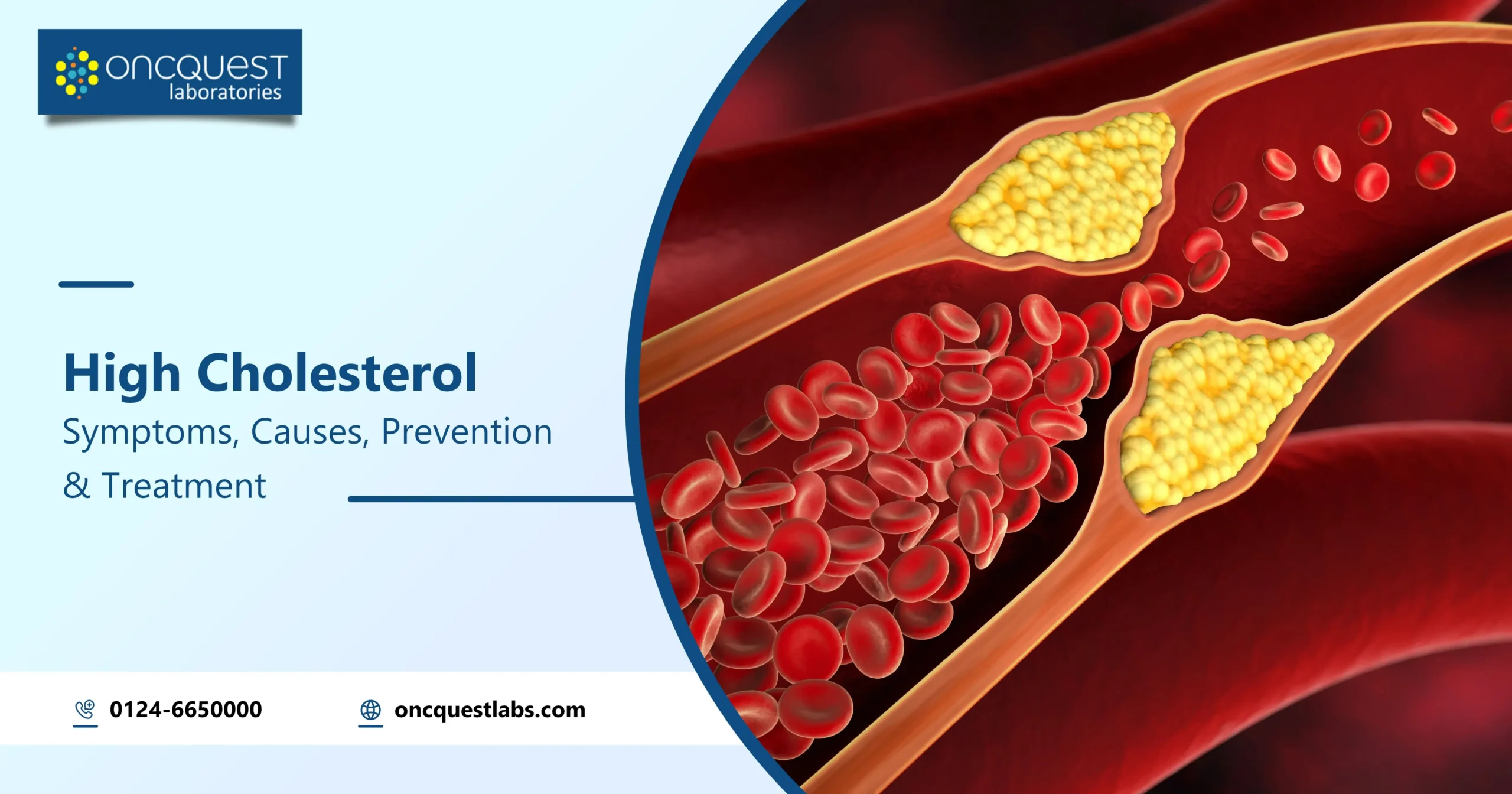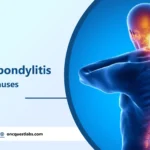In today’s fast-paced world, where convenience often trumps conscientious choices, maintaining a healthy lifestyle has never been more crucial. One silent, yet potentially perilous, contributor to our well-being is high cholesterol. As a widespread health concern, understanding the nuances of this condition becomes paramount. This blog aims to shed light on the intricacies of high cholesterol, delving into its symptoms, causes, prevention strategies, and effective treatment options. Join us on this journey to unravel the mysteries surrounding cholesterol and empower yourself with the knowledge needed for a heart-healthy life.
Contents
Symptoms of High Cholesterol
The symptoms of high cholesterol are often elusive, earning it the moniker of a “silent” condition. In many cases, individuals may not experience noticeable signs. However, prolonged elevated cholesterol levels can manifest in more subtle ways. Common symptoms may include:
1. Chest Pain or Angina: High cholesterol can contribute to the buildup of plaque in arteries, leading to chest discomfort or pain.
2. Fat Deposits on Skin: Yellowish, fatty deposits known as xanthomas may appear on the skin, particularly around the eyes or elbows.
3. Shortness of Breath: Reduced blood flow due to narrowed arteries can affect respiratory function, resulting in shortness of breath.
4. Fatigue: Decreased blood flow to vital organs may lead to fatigue and weakness.
5. Frequent Peripheral Artery Disease (PAD) Symptoms: Poor circulation in the legs can cause leg cramping, numbness, or weakness during physical activity.
6. Vision Problems: Cholesterol buildup in blood vessels supplying the eyes can contribute to vision issues.
It’s crucial to note that these symptoms may not be exclusive to high cholesterol and can overlap with other health conditions. Regular health check-ups and cholesterol screenings are essential for early detection and effective management. If you experience any of these symptoms, consulting with a healthcare professional is advisable.
Causes of High Cholesterol
High cholesterol can stem from a combination of genetic, lifestyle, and medical factors. Understanding these causes is pivotal for effective management. Here are key contributors to elevated cholesterol levels:
1. Unhealthy Diet: Consuming a diet high in saturated and trans fats, found in red meat, full-fat dairy products, and processed foods, can elevate cholesterol levels.
2. Lack of Physical Activity: Sedentary lifestyles contribute to weight gain and can lower levels of high-density lipoprotein (HDL) or “good” cholesterol.
3. Obesity: Being overweight or obese is often linked to higher levels of low-density lipoprotein (LDL) or “bad” cholesterol.
4. Genetics: Family history plays a significant role. If parents or siblings have high cholesterol, there may be a genetic predisposition.
5. Age and Gender: Cholesterol levels tend to rise with age. Women may experience an increase in cholesterol levels after menopause.
6. Smoking: Tobacco smoke not only damages blood vessels but also lowers HDL cholesterol.
7. Medical Conditions: Underlying health issues such as diabetes, hypothyroidism, or kidney diseases can impact cholesterol metabolism.
8. Medications: Certain medications, such as corticosteroids and some diuretics, can contribute to elevated cholesterol levels.
Understanding the interplay of these factors is essential for developing personalized strategies to manage cholesterol effectively. Lifestyle modifications and, in some cases, medications can help mitigate these risk factors and promote heart health. Regular check-ups and cholesterol screenings aid in early detection and intervention.
Prevention of High Cholesterol
Preventing high cholesterol involves adopting a heart-healthy lifestyle. Here are key strategies to lower cholesterol levels and promote cardiovascular well-being:
1. Balanced Diet: Emphasize a diet rich in fruits, vegetables, whole grains, and lean proteins. Limit saturated and trans fats found in processed foods and red meat.
2. Regular Exercise: Engage in moderate-intensity aerobic exercise, such as brisk walking, for at least 150 minutes per week. Incorporate strength training exercises to improve overall fitness.
3. Maintain a Healthy Weight: Achieving and maintaining a healthy weight through a combination of a balanced diet and regular physical activity can help manage cholesterol levels.
4. Avoid Smoking: Smoking damages blood vessels and lowers HDL cholesterol. Quitting smoking is a significant step toward heart health.
5. Limit Alcohol Intake: If you consume alcohol, do so in moderation. For men, this means up to two drinks per day; for women, it’s up to one drink per day.
6. Manage Stress: Chronic stress can contribute to unhealthy lifestyle choices. Incorporate stress-reducing activities such as mindfulness, meditation, or yoga into your routine.
7. Regular Health Check-ups: Schedule routine check-ups with your healthcare provider to monitor cholesterol levels and assess overall cardiovascular health.
8. Medication Adherence: If prescribed cholesterol-lowering medications, take them as directed by your healthcare provider.
By adopting these preventive measures, individuals can significantly reduce the risk of developing high cholesterol and its associated health complications. A proactive approach to heart health is essential for a long and healthy life.
Treatment Options for High Cholesterol
Treatment for high cholesterol typically involves a combination of lifestyle changes and, in some cases, medications. Here are key treatment options:
1. Lifestyle Modifications:
- Dietary Changes: Adopt a heart-healthy diet rich in fruits, vegetables, whole grains, and lean proteins. Reduce saturated and trans fats.
- Regular Exercise: Engage in aerobic activities like walking or cycling for at least 150 minutes per week. Include strength training exercises.
- Weight Management: Achieve and maintain a healthy weight to improve cholesterol levels.
2. Cholesterol-Lowering Medications:
- Statins: Commonly prescribed medications that inhibit cholesterol production in the liver, lowering LDL cholesterol. Examples include atorvastatin and simvastatin.
- Ezetimibe (Zetia): Works by reducing the absorption of cholesterol in the small intestine.
- PCSK9 Inhibitors: A newer class of medications that helps lower LDL cholesterol levels, often used in combination with statins.
- Bile Acid Sequestrants: Bind to bile acids in the intestines, reducing cholesterol absorption. Examples include cholestyramine.
3. Combination Therapy: In some cases, healthcare providers may prescribe a combination of different medications to achieve optimal cholesterol management.
4. Regular Monitoring: Periodic check-ups and cholesterol screenings are crucial to monitor the effectiveness of treatment and make necessary adjustments.
It’s essential to note that treatment plans are individualized based on factors like overall health, existing medical conditions, and the severity of high cholesterol. Consultation with a healthcare professional is critical to determine the most suitable approach for managing high cholesterol and promoting cardiovascular health.
Importance of Seeking Professional Advice
Seeking professional advice is paramount when addressing high cholesterol due to several crucial reasons:
1. Accurate Diagnosis: Healthcare professionals can accurately diagnose high cholesterol through blood tests, ensuring a precise understanding of your cholesterol profile.
2. Individualized Treatment Plans: Healthcare providers can tailor treatment plans based on your unique health profile, considering factors such as age, medical history, and existing conditions.
3. Medication Management: If medications are prescribed, healthcare professionals can monitor potential side effects, adjust dosage, or switch medications as needed for optimal results.
4. Lifestyle Guidance: Professionals offer personalized advice on lifestyle modifications, including diet and exercise plans tailored to your specific needs and preferences.
5. Risk Assessment: Healthcare providers assess overall cardiovascular risk, helping you understand the broader implications of high cholesterol and implementing preventive measures.
6. Monitoring Progress: Regular check-ups enable ongoing monitoring of cholesterol levels and the effectiveness of treatment, ensuring timely adjustments as needed.
7. Education and Support: Professionals provide valuable education on the importance of cholesterol management, empowering you to make informed decisions and sustain long-term heart health.
8. Holistic Approach: Professionals take a comprehensive approach, considering not only cholesterol levels but also other risk factors and overall health, promoting a holistic strategy for cardiovascular well-being.
By seeking professional guidance, individuals can navigate the complexities of high cholesterol management with confidence, increasing the likelihood of successful outcomes and a healthier, heart-conscious life.
Wrapping Up
In conclusion, understanding and managing high cholesterol are crucial steps towards ensuring a heart-healthy life. We’ve explored the symptoms, causes, prevention strategies, and treatment options associated with elevated cholesterol levels. Remember:
Early Detection Matters: Regular health check-ups and cholesterol screenings are essential for early detection and timely intervention.
Lifestyle is Key: Adopting a balanced diet, engaging in regular exercise, and maintaining a healthy weight are powerful tools in cholesterol management.
Consult with Professionals: Seeking advice from healthcare providers is vital for accurate diagnosis, individualized treatment plans, and ongoing support.
By taking proactive steps and incorporating these insights into your daily life, you can significantly reduce the risk of high cholesterol and its associated health concerns. Empower yourself with knowledge, make informed choices, and embark on a journey towards a heart-healthy and fulfilling future.


![Blood Test for Hair Loss [Male/Female] Blood Test for Hair Loss](https://oncquest-blog.s3.ap-south-1.amazonaws.com/blog/wp-content/uploads/2023/12/12044200/Blood-Test-for-Hair-Loss.webp)


